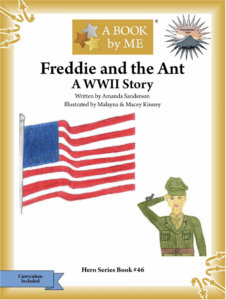Freddie and the Ant
Written by Amanda Sanderson
Illustrated by Macey & Malayna Kinney
For the series A BOOK by ME - True Stories Written by Kids for Kids
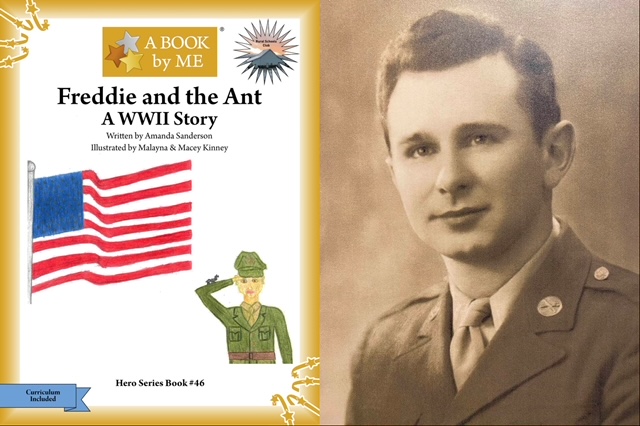
I learned about this 103-year-old hero and immediately asked if he’d be willing to have his story told through the eyes of a student. He didn’t think his story was exciting enough. Eventually we won him over and I’m so glad we did.
Our Freddie fought in the Battle of the Bulge. Despite facing overwhelming odds, the Allied forces were able to persevere and eventually defeat the German offensive. An important lesson is to stay resilient in the face of challenges and not give up, even when things seem bleak. The Battle of the Bulge was a costly and bloody battle. As Freddie said, they were all just a bullet away from being a casualty.
Freddie’s co-star in this book is an ant. Feeling like you want to disappear like an ant in the crack of the floor is a common experience that many of us go through at some point in our lives. It can be a sign of feeling overwhelmed, stressed or defeated. It’s okay to not be okay sometimes. Everyone has bad days and moments of self-doubt. The ant in this book reminds us of this truth.
Deb Bowen, Creator A BOOK by ME
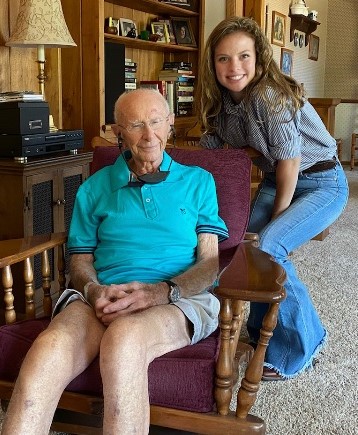
Freddie Foster with author Amanda Sanderson
“I had so much fun, and I think everyone should be able to experience this!! Writing this story gave me a new perspective on things that school didn’t touch on when teaching WWII. Freddie was so sweet and understanding. It was a true blessing to talk to Freddie.”
Amanda Sanderson, Author
Freddie said this about the war: “I had good and not-so-good experiences during the war. Telling my story is important. The people of America, young women and men, should understand what the former citizens went through to maintain our independence and freedom as a country. They should know all about what we’ve done to allow democracy in America and keep it for future generations.”
Fred D. Foster — U.S. Army, Battle of the Bulge, WWII
Born in 1918 in Chicago, Illinois, “Freddie” D. Foster, his parents and his older sister had a good life. Even during the depression, they had all that they needed, which wasn’t saying a lot. They had a garden for fresh fruits and vegetables, and traded with others for most anything else. Fred’s father and grandfather worked for the railroad as contractors, moving dirt with scrapers and horses. Fred’s cousin Floyd, who was a few years older, moved in with Fred’s family when his mother passed away. Fred and Floyd were like brothers for the rest of their lives.
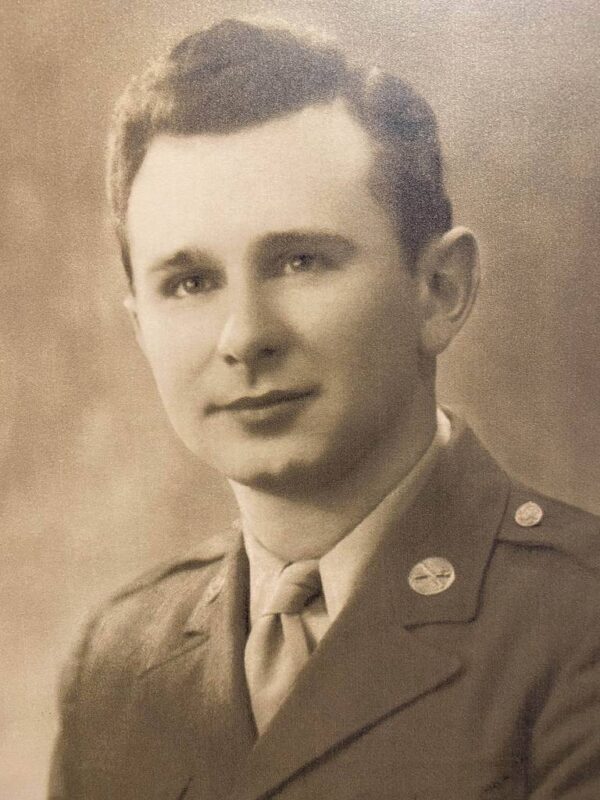
Freddie Foster
Fred remembers being at work when he learned about the Japanese bombing of Pearl Harbor. Despite having a draft deferment, Fred elected to enlist in the Army in order to join friends and other family members who were serving. He and Floyd went to the enlistment office together, but Floyd did not pass his physical.
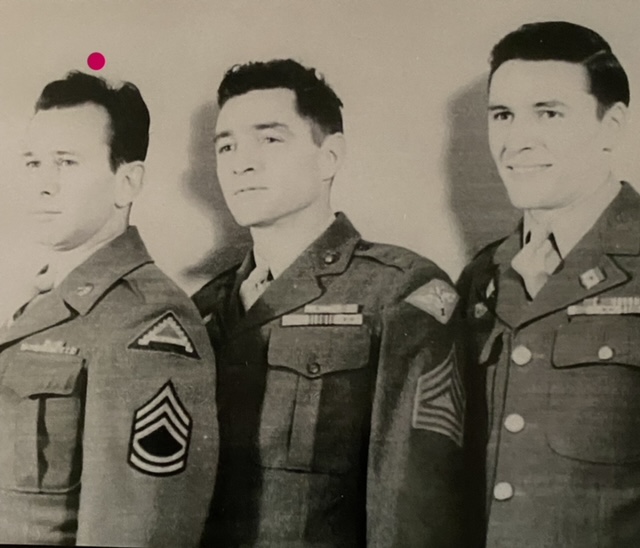
Freddie Foster with his brothers-in-law, Bill Rahn and Herman Rahn
Fred’s first job in the Army was in administration. Because he was familiar with a slide rule, he was later trained in fire disciplines. Fred shipped off to the European theater in 1944. He had no idea where he was going other than he was going to war. En route, his ship was among a fleet of many other ships. A British ship carrying aircraft from the United States was among them. One morning when Fred awoke, he discovered the British ship was gone. While he still does not know for certain how it sank, he suspects it had been attacked by a German submarine. After four or five days of travel, Fred’s ship ultimately landed in Le Havre, France, a city that was heavily bombed during World War II. He also spent time in Germany, where he found the people to be very friendly.
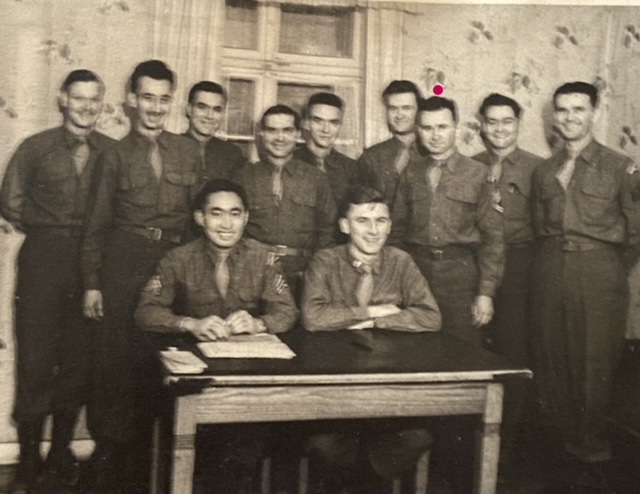
Freddie’s Company photo
Fred was eventually sent to the Battle of the Bulge in Belgium. This battle was considered the turning point of the war. It lasted six long weeks, from December 16, 1944 to January 25, 1945. The German army attacked the battle-fatigued Americans in 85 miles of forests. The troops on both sides faced freezing rain, thick fog, deep snow and extremely low temperatures. Thousands got pneumonia or frostbite. Sleep was often found alongside a road. Fred was fortunate to have layers of warm clothes, a coat, and warm socks and boots. Unlike most men who were on foot, he was often placed in some sort of shelter away from the elements and traveled by vehicle when his unit moved.
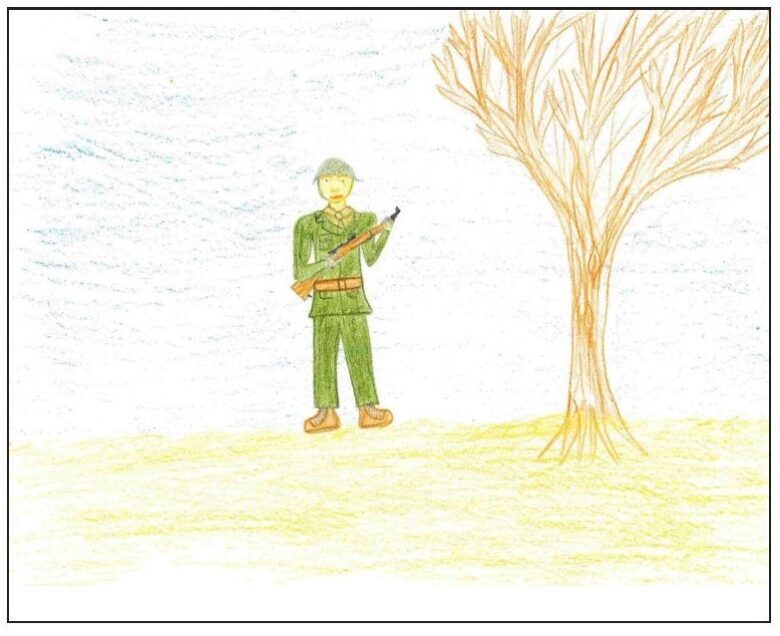
As Fred reminisced, he said he was fortunate. “War is as big as one bullet, and he dodged the bullets at the Bulge.” Fred remembers Christmas of 1944 as being very bleak. He was sitting alone wondering, “What will tomorrow bring?” He thanked God that the Allied lines “bulged,” but did not break.
As a Tech Sergeant with the 401st Field Artillery Group, Fred’s job was to use information sent to him by a forward observer to calculate the firing data for the guns. The process consisted of determining the precise target location based on the observer’s location (if needed), then computing range and direction to the target from the location of the guns. This data was computed manually using special protractors and slide rules. Fred never had one-on-one contact with an enemy soldier. Field Artillery Groups did their work from behind the front lines and “over the top.”
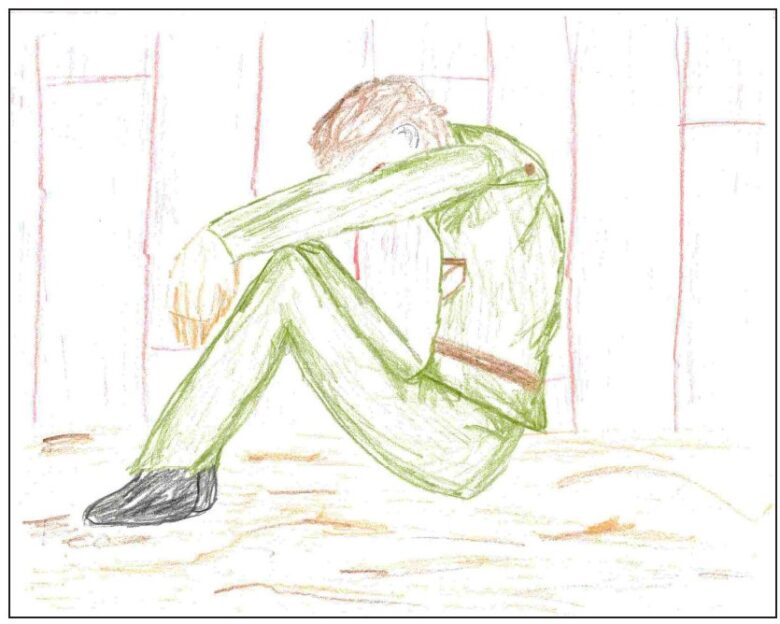
After a particular Allied bombing, Fred was in a German town, and his unit was checking to assure that civilians were alright. When he went into a home, he found beds unmade and food on the table. The family and all other members of the town had disappeared. They had obviously run to safety. One cold, lonely night Fred was sitting in a barn. He sat down on the floor and watched a tiny ant that was crawling around. Suddenly, it disappeared into a crack of the floor. Young Fred thought: “I wish I were an ant and could disappear, too.” Fred was likely not alone in that thought. Wanting to disappear in the midst of a horrific war would be a very natural thing to desire.
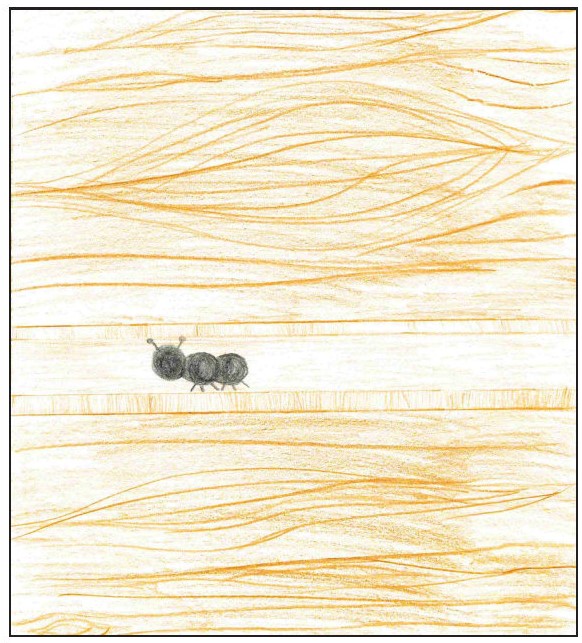
Interestingly, ants are able to carry up to twenty times their own body weight. If a human could lift twenty times their body weight that would be about 4,000 pounds. Perhaps Fred, and every member of the Allied forces, felt like they had the weight of the world on their shoulders, fighting against Nazism and tyranny on two fronts. Fred was in the European theater fighting the Germans and Italians, while others were fighting the Japanese in the Pacific theater.
Fred’s favorite memory of the war was playing poker with five guys and having four different currencies on the table—German marks, French francs, Italian lira and American dollars. Young author Amanda Sanderson, who interviewed Fred in his home, asked if he won that poker game. He chuckled and replied, “YES!”
During the war Fred wrote letters back and forth to his wife and young son, but he said that military life kept him so busy he had very little down time. Days typically began at 4:00 a.m., and when the day ended, he was so tired he just wanted to sleep. He doesn’t remember ever being scared. He was always too busy to be scared.
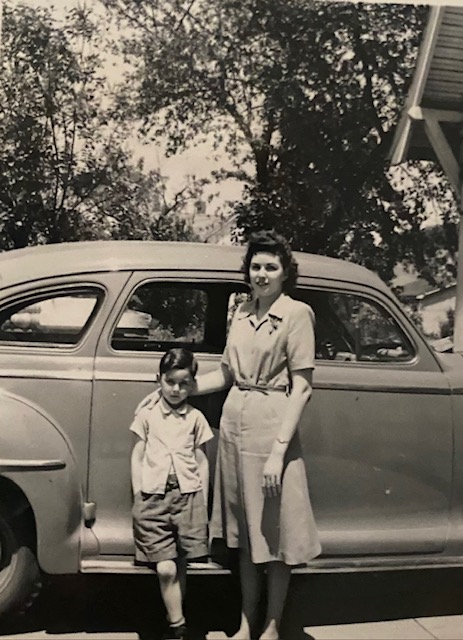
Freddie’s wife Esther and son Allen
Ultimately, Fred said the military taught him discipline, something he feels is missing today. He said the proverbial joke about someone yelling “JUMP!” and the response being “How high?” was true. Fred said that every person in the military depends on his friends. You did not have the luxury of disliking anyone. You respected each other’s talents.
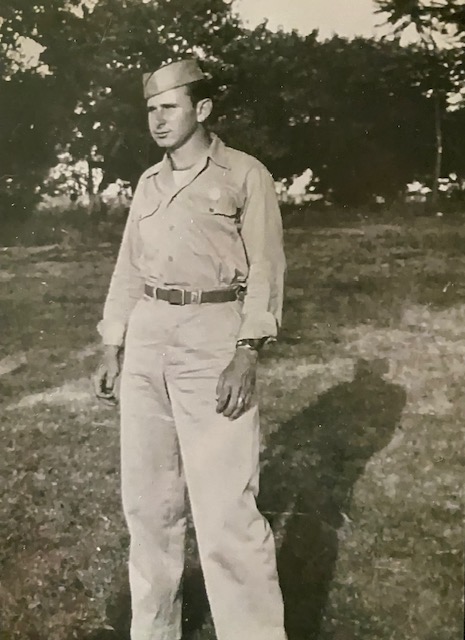
Freddie while in basic training
Fred continued to serve in the Army until 1949. After the war was over, he was stationed in Germany. Upon returning home to Aurora, Illinois, he took advantage of the G. I. Bill that granted stipends covering tuition and expenses for veterans attending college or trade schools. He chose to study mathematics. Fred worked for Barber Greene in DeKalb, Illinois for 43 years in the engineering and procurement department. After he retired, he assisted numerous companies as a consultant. Sadly, Fred passed away on February 11, 2022, at the age of 103. His was a life well lived.

Illustrators Macey & Malayna Kinney
When Fred Foster heard that the Japanese had bombed Pearl Harbor, like many of his friends and family he decided to join the Army. His training eventually brought him into Germany and the Battle of the Bulge. Read this story to learn how Fred gained inspiration from a tiny ant in the midst of the horrors of WWII. This book is in the Rural Schools Club.
A BOOK by ME, a book series developed by Deb Bowen, empowers students to preserve history by telling the story of unsung heroes in our communities. For the young participants, it’s a guided cross-curricular project that gathers stories of people who do amazing things but have received little or no recognition. Students learn how to publish a picture book that is a primary source document with photographs and a biography.
Since 2003, Deb Bowen has been arranging meetings between students and individuals from the WWII generation. This intergenerational storytelling results in unique storybooks written and illustrated by kids for kids in the A BOOK by ME series. More about Deb Bowen >

